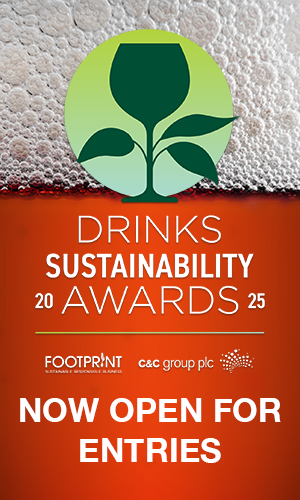The Catering Equipment Suppliers Association is calling on organisations, government offices and industry leaders to work together to push the green agenda. New chair Nick Oryino explains why.
LAST MONTH we published our Mind the Gap research, supported by feedback from vox-pop surveys conducted at our 2012 conference. This showed that catering suppliers believe that sustainability will deliver a major boost to business in the next three years. Indeed, 33% of respondents said the drive for more environmentally sustainable practices will create new product and service opportunities, while 39% said it would encourage innovation. Meanwhile, 81% agreed that sustainability will be key to growing their business.
However, there are also issues holding back investment in sustainable products. There is, for instance, an urgent need to establish an energy efficiency specification for catering equipment. This would allow buyers and specifiers to determine the relative benefits of different equipment models, just as buyers of domestic appliances can. The Carbon Lifecycle Calculator model is a first step in providing an effective evaluation of the key equipment categories and, with other organisations on board such as the Catering Equipment Distributors Association (CEDA), the British Hospitality Association (BHA) and the Foodservice Consultants Society International (FCSI) as well the Department for Environment, Food and Rural Affairs (DEFRA) and the Government Procurement Service, there is real hope that it will be developed quickly.
But this is not always the case. Product substitution where a specified energy-saving model is replaced by a conventional one to cut costs is a real threat to the reduction of the industrys carbon footprint. In our research, 70% of respondents agreed that product substitution is a major problem in the equipment supply chain. When asked what practical steps could be taken to improve their understanding of sustainability issues, over half agreed that independently established standards, with the verifications of costs, savings and benefits, is the way forward.
CESA, via our European Federation, has access to established energy efficiency standards that can be used in the process, and we are using this data to push the Carbon Trust to include more product categories on the Energy Technology List (ETL). More product categories on the ETL will make a huge difference. But though everyone agrees with the need to realise the potential of the ETL, achieving results is taking an inordinate amount of time we have been discussing the issue with the Carbon Trust for years. This is an example of where collaboration is the key to success: individually, organisations may be well-placed to make meaningful and effective contributions to the processes that are already underway; while collectively, our combined pressure could make a real difference.
I firmly believe that to deliver a truly sustainable future for the foodservice industry we need to encourage a more collaborative, inclusive approach. There are critical challenges facing the industry and as manufacturers, distributors or consultants, the best way to help foodservice operators meet those challenges is to work together, to put our differences behind us and focus on the synergies.
An imminent example is our established energy-saving campaign Shut it! Fill it! Turn it off!, which is set for a major re-boot, with confirmed support from CEDA and the FCSI, and anticipated support from the BHA and DEFRA. The first step will be a jointly funded redevelopment of the campaigns carbon management training podcasts for foodservice operators. If operators use the podcasts, they will go a long way to reducing energy wastage in foodservice establishments across the board.
- Nick Oryino was appointed CESA chair in December. He is also managing director of Carford Group.











